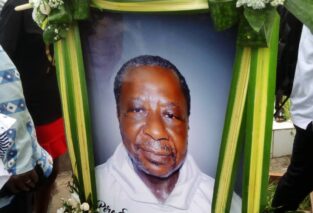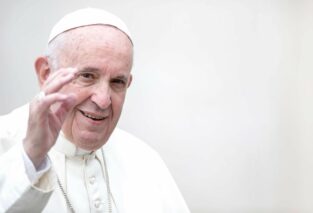During the Christmas Day Mass at Saint Mary’s Parish in Gilroy, California, the presiding priest delivered a homily that has since found a home in my heart, soul, and mind. He titled it, “Bloom where you are planted,” encouraging us to make the best of our current situation, regardless of the circumstances we may find ourselves in. When Joseph and Mary could not find a more dignified place to receive them, he said, they entered a stable where the Child Jesus was born. Despite the rough conditions, the couple from Nazareth bloomed where they were planted and brought the Saviour of mankind into the world.
The first visitors to the stable to adore the newborn King of the Jews and humanity, were shepherds, people whose lives of tending their sheep in the cold winter nights were far from glamorous. They came to the Lord with what Pope Francis, regarding the pastors of our Church, would call “the smell of their sheep on them.” Yet, despite the danger from roving animals and robbers, they bloomed where they were planted. It is to such individuals, not to Herod and his sycophants, living in debauchery in luxurious palaces, that the multitude of the heavenly host appeared, praising God and singing: “Glory to God in the highest and on earth peace to those on whom his favour rests” (Lk 2:13-14).
The evangelist Matthew tells us that no sooner had the Messiah been born than the pagan world, represented by the legendary Magi from the East—wise men firmly rooted and blooming in their own cultures—came, led by a star, and asking: “Where is the newborn king of the Jews? We saw his star at its rising and have come to do him homage” (Mt 2:1-2). Their presence stirred panic in the hearts of the timorous Herod and the entire Jewish people, who were still completely unaware of the momentous event that God’s Word had taken flesh and was now dwelling among us (Jn 1: 14).
Joseph later took his family back to his small village of Nazareth, but no sooner had he tried to plant them there to bloom than God asked him to take the child and his mother away from Herod’s murderous fury to Egypt, only bringing them back when told that the coast was clear. “When Herod had died, behold, the angel of the Lord appeared in a dream to Joseph in Egypt and said, ‘Rise, take the child and his mother and go to the land of Israel, for those who sought the child’s life are dead’” (Mt 2:19-20). Joseph did as commanded and brought back his family to Nazareth; there he planted them and they bloomed “so that the words spoken through the prophets might be fulfilled, ‘He shall be called a Nazorean’” (Mt. 2:23).
As I listened to that simple and audibly delivered homily, I thought of many men, women, and children of our age, who have been forced by circumstances beyond their control, notably wars, to abandon home and family to seek refuge elsewhere. The beginning is never easy, but with time, many of them do bloom where they are planted, especially when they heed our Lord’s invitation: “Come to me, all you who labour and are burdened, and I will give you rest” (Mt 11:28).
I saw in that homily an inspiration for people like me, refugees from a senseless war that has devastated parts of my country, Cameroon, not to give in to despair but to thrive and bloom in our present environment, rather than waiting, pan-in-hand, for perfect conditions, or opportunities that may never arrive.
We must bloom where we are planted.



